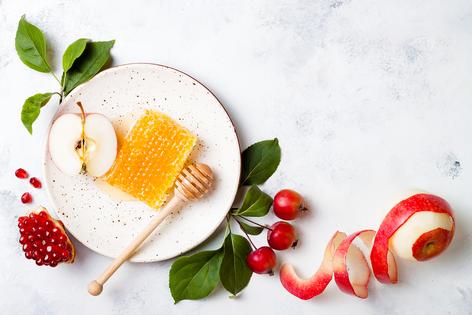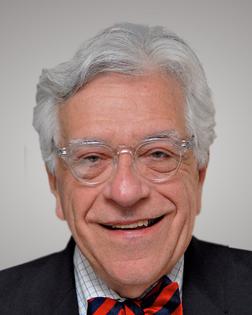The God Squad: Happy New Year!
Last Sunday night was the beginning of Rosh Hashana, the Jewish New Year, and every year at this time I send along to you, my dear readers, a brutally edited short version of my Rosh Hashana sermon. Hope you all have a sweet new year whenever you count its beginning. God bless you.
This is a sermon about bread, but it does not begin in a bakery. It begins in the Temple in Jerusalem where, according to verses in Exodus and Leviticus, among all the holy objects, called in Hebrew the klei kodesh — objects like the ark, the menorah, the altar of sacrifice and the wash basin, there was also a golden table and on this table, there were 12 loaves of unleavened bread, six in one pile, six in the other pile.
The key to understanding God’s message for us in the symbolism of the show bread is to begin with the cultural significance of all bread.
To make bread, the early humans had to settle down from being hunter gatherers and become farmers who grew wheat and barley, which required irrigation for their fields, which required mathematics and geometry, which required raising an army to protect the fields, which required metallurgy. Bread is the beginning of civilization and also a moral challenge to civilization. The distribution of bread to the hungriest is the most important test of the health of a culture.
The show bread is a reminder that just as God feeds us, so must we feed others. We cannot pray to God when we are starving, and if we do pray, we are praying for bread. Hunger wipes out the meaning of any other prayer. As Gandhi famously taught, “To a hungry man God is bread.”
I learned the truth of Gandhi’s teaching one day at the Mary Brennan Inn in West Hempstead, New York, a soup kitchen run by Jean Kelly along with 14 others on Long Island. Father Tom Hartman and I were helping serve lunch one day when a girl named Maria arrived with her mother and little brother. They came from their car, which was also their home. She walked right past the fried chicken and green beans and mashed potatoes and went straight to the dessert tray, which that day featured a cake that had been donated by Emil, the owner of the Black Forest bakery in Lindenhurst, N.Y. It had the words Happy Birthday written in red icing. Emil would have filled in a name for a buyer of the cake, but that day there was no buyer. There was, however, Maria. She stared at the cake and with a huge smile asked me, “How did you know that today was my birthday?” Gandhi was wrong. Sometimes for a hungry person God is bread and sometimes for a hungry little girl God is a birthday cake.
Another story:
A student asks his teacher, "What is the difference between Heaven and Hell?" The teacher responds, "In Hell, all the people are sitting around a huge table filled with every kind of delicious food and fine wine. They can see the food and smell the food and touch the food, but they cannot bring the food to their mouths because their arms are locked and stiff."
"That is indeed Hell," said the student, "And what is Heaven like?"
The teacher responded, "In Heaven, all the people are sitting around a huge table filled with every kind of food and fine wine. They can see the food and they can smell the food and they can touch the food, but they cannot bring the food to their mouths because their arms are locked and stiff."
The puzzled student asked, "Teacher, what is the difference between Heaven and Hell?"
The Teacher smiled and said, "In Heaven, the people are feeding each other."
Our bread must not just feed us. Our bread must feed each other. The lechem panim only fed the priests. The bread of our world must feed the world.
Bread is also a lesson to give thanks for the little things.
A friend of ours was invited for dinner at Bill Paley’s mansion on Searingtown Road in Manhasset, Long Island. Bill was the CEO of CBS. They were eating in his immense and ornate formal dining room and at the beginning of the meal a butler brought Bill a dinner roll on a silver plate. In a strange and intricate ritual, Bill first smelled the roll and then caressed the roll, and then tore the roll apart and ate it slowly with his eyes closed. My friend asked him what he was doing, and Bill answered him, “If I can appreciate this roll, then I can appreciate everything else I have.”
Bread leads us to gratitude and gratitude leads us to God. There are fancier lessons I could teach you but none more important than the lessons of bread.
========
(Send ALL QUESTIONS AND COMMENTS to The God Squad via email at godsquadquestion@aol.com. Rabbi Gellman is the author of several books, including “Religion for Dummies,” co-written with Fr. Tom Hartman. Also, the new God Squad podcast is now available.)
©2022 The God Squad. Distributed by Tribune Content Agency, LLC.
(c) 2022 THE GOD SQUAD DISTRIBUTED BY TRIBUNE MEDIA SERVICES, INC.










